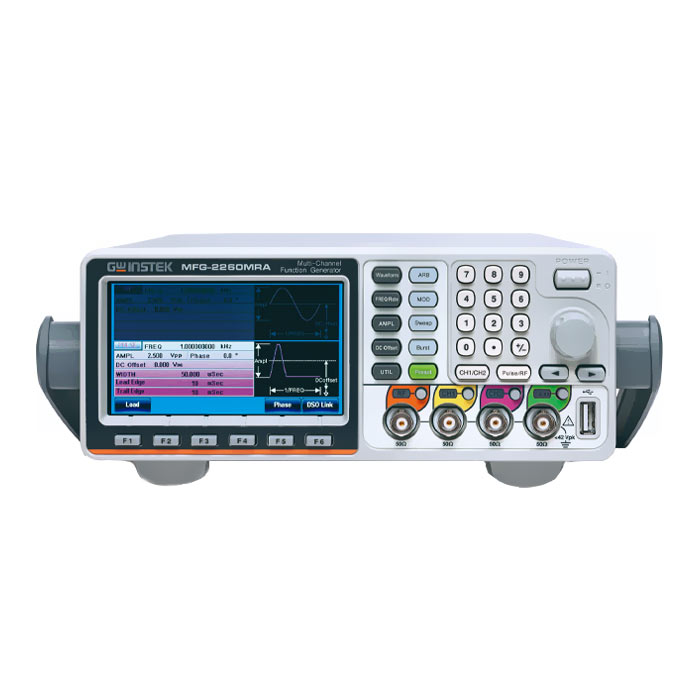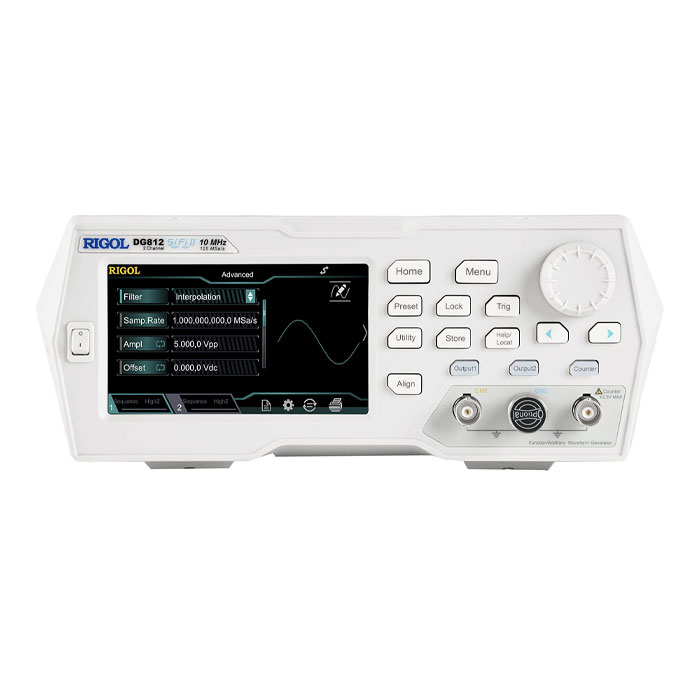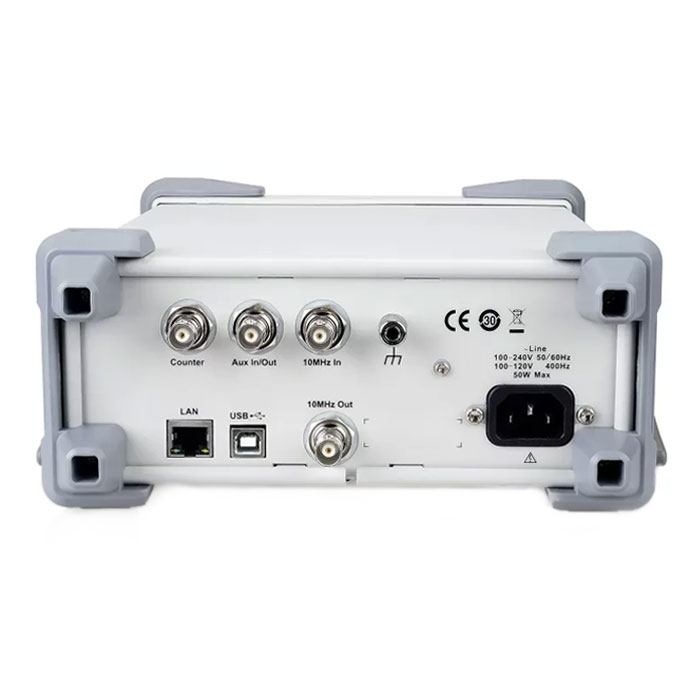Showing all 14 resultsSorted by price: high to low
Function Generator
Are you looking for a reliable function generator to create precise electrical waveforms for your electronics projects? A signal generator or waveform generator is an essential piece of equipment for engineers, technicians, and researchers who need to test, analyze, or develop electronic systems with accuracy. Whether you’re performing simple circuit diagnostics or running advanced signal simulations, a digital function generator ensures consistent, stable, and accurate results every time.
With applications across electronics, telecommunications, R&D, and education, a function generator helps simulate real-world signals for testing circuits, measuring system response, and validating component performance. Explore our wide range of function generators, including arbitrary waveform generators (AWG), RF signal generators, and sweep function generators, to find the perfect match for your project.
What is a Function Generator?
A function generator (also called a function signal generator or waveform generator) is a versatile electronic test instrument used to generate repetitive electrical waveforms — such as sine, square, triangle, and sawtooth waves. These devices are essential for circuit design, troubleshooting, and signal analysis in laboratories and industrial environments.
By controlling frequency, amplitude, and waveform shape, a function generator machine allows engineers to test and characterize components like amplifiers, filters, and oscillators. The ability to produce standard and arbitrary waveforms makes it indispensable for simulating different signal conditions and ensuring devices perform reliably under varying loads.
Applications of a Function Generator
A Function Generator is a versatile tool used in various fields of electronics, engineering, and education. Its ability to produce a variety of waveforms at adjustable frequencies and amplitudes makes it indispensable for a wide range of applications:
- Circuit Testing: Simulate signals for testing amplifiers, filters, and oscillators.
- Research and Development: Design and test electronic components and devices.
- Educational Purposes: Demonstrate signal properties in academic environments.
- Troubleshooting: Identify faults in circuits by injecting test signals.
- Medical Equipment Testing: Calibrate and test sensors and instruments.
Types of Function Generators
Function generators come in different types, each designed to cater to specific needs and applications. Here’s a breakdown of the most common types:
1. Analog Function Generators
Analog function generators rely on analog circuitry to produce standard waveforms such as sine, square, and triangle waves. These devices are commonly used for basic circuit testing, educational purposes, and simple waveform generation. They are cost-effective, straightforward to operate, and suitable for low-frequency applications. However, their precision and ability to customize waveforms are limited compared to digital models, making them less ideal for advanced testing needs.
2. Digital Function Generators
Digital function generators utilize digital signal processing (DSP) to generate accurate and customizable waveforms. They are ideal for high-precision tasks, signal simulation, and advanced testing applications. Their key advantages include exceptional accuracy, stability, and the ability to create complex waveforms and modulate frequencies. While they offer superior functionality compared to analog generators, their advanced features come at a higher cost.
3. Arbitrary Waveform Generators (AWG)
Arbitrary waveform generators (AWGs) are highly versatile tools that allow users to create custom waveforms beyond standard shapes. They are widely used in research and development, as well as in testing unique signal conditions in communication systems and power electronics. AWGs stand out for their ability to store, sequence, and generate advanced waveforms, but they are more complex to operate and typically more expensive than other types of function generators.
4. RF Signal Generators
RF signal generators are specialized tools designed to produce high-frequency signals, typically in the radio frequency (RF) range. These devices are essential for testing RF components such as antennas, receivers, and transmitters, and they play a crucial role in telecommunications and wireless communication development. RF signal generators provide high precision and support modulation techniques like amplitude and frequency modulation. However, they are limited in waveform variety compared to standard function generators.
5. Sweep Function Generators
Sweep function generators are designed to produce signals with frequencies that vary over a defined range, commonly referred to as a sweep. These devices are particularly useful for testing the frequency response of amplifiers, filters, and other circuits, as well as analyzing resonance behavior in systems. They automate frequency testing over a wide range, simplifying the process. However, their functionality is mainly limited to applications involving frequency sweeping.
6. Audio Function Generators
Audio function generators are specialized devices optimized for producing waveforms within the audible frequency range. They are primarily used for testing and analyzing audio equipment such as speakers, microphones, and sound systems. These generators are ideal for evaluating frequency response and detecting distortions in audio systems. While they excel in the audio spectrum, their frequency range and waveform options are limited compared to more general-purpose function generators.
7. Pulse Generators
Pulse generators are designed to produce pulses with specific characteristics, such as width and intervals, making them essential for testing digital circuits. They are commonly used for testing microcontrollers, logic circuits, and simulating clock signals for synchronization purposes. Pulse generators offer precise control over pulse properties, ensuring accurate testing for digital systems. However, their functionality is focused on pulse generation, with limited options for other waveform types.
Key Features to Consider When Buying a Function Generator
When choosing a function generator or signal generator, keep these essential factors in mind to get the best performance and value:
-
Waveform Variety: Ensure the model supports multiple waveform types — sine, square, triangle, and custom arbitrary shapes.
-
Frequency Range: Match the frequency range to your specific application — audio, RF, or high-frequency electronics.
-
Accuracy & Stability: Look for low noise, precise frequency control, and long-term signal stability.
-
Modulation Options: Consider AM, FM, or PWM capabilities for advanced signal testing.
-
Display & Interface: A digital function generator with a clear LCD and intuitive menu system saves time and reduces setup errors.
-
Connectivity: Models with USB, LAN, or GPIB ports allow integration with computers and test automation setups.
-
Size & Portability: Choose between compact portable function generators for field use or benchtop versions for lab work.
-
Price & Support: Explore the best function generator price in UAE with warranty and after-sales service for lasting reliability.
Find the Best Function Generator in UAE
At MME Electronics, you’ll find a full range of function generators, signal generators, and waveform generators for every testing need. Whether you need a bench function generator, a compact waveform generator, or a high-frequency RF signal generator, our collection is designed for professionals who demand precision and performance.
Shop online, compare models, and contact our experts for personalized recommendations — ensuring you get the right function generator equipment for your lab, classroom, or production line.

















 Bench Multimeters
Bench Multimeters